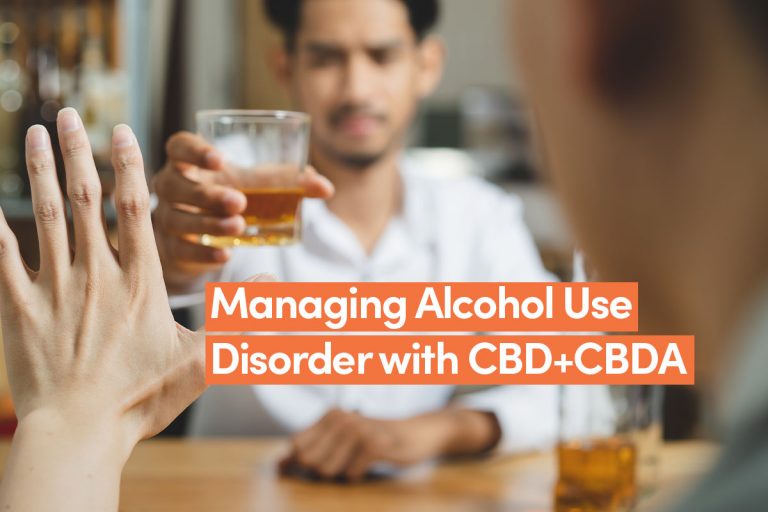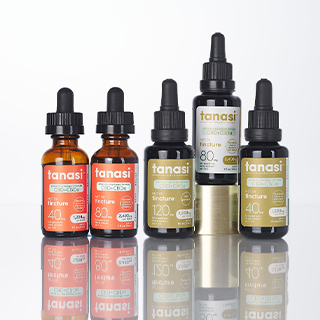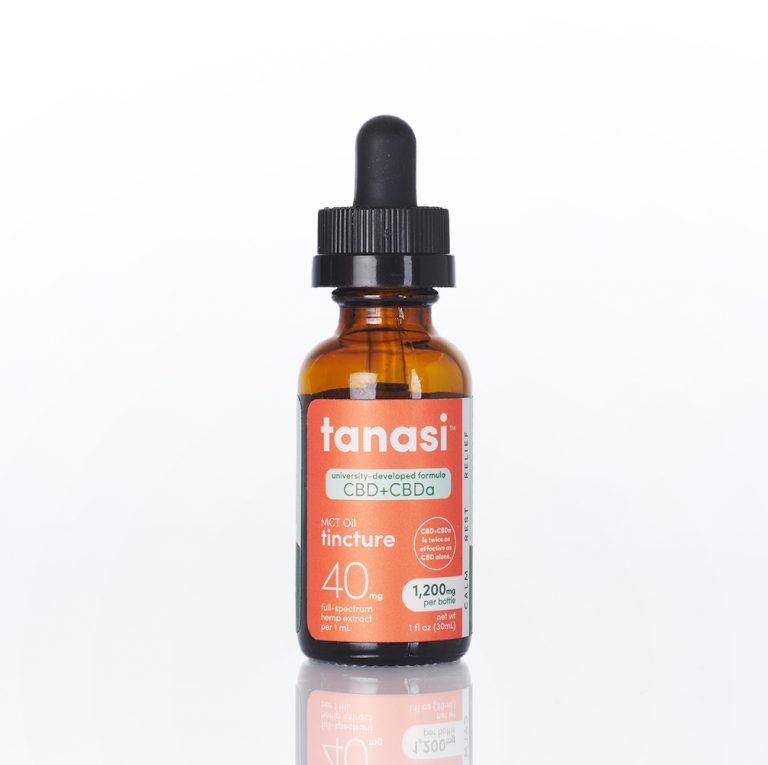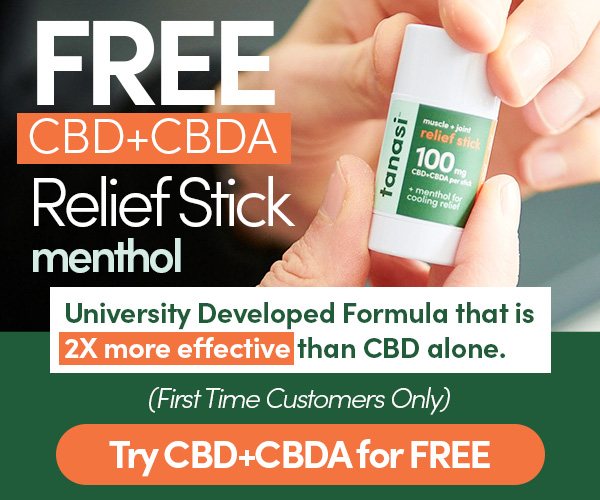Can You Get Addicted to CBD Oil?
Posted on May 29th, 2020
Cannabidiol (CBD) is having a major moment. Whether it’s a water-soluble drink concentrate or infused in gummies, honey, chocolate, or suppositories, CBD is showing up in almost everything you can imagine. And it’s not just for consumption: CBD is also taking over the beauty industry. From skin cream to cleansers, a variety of CBD-infused products are cropping up in stores everywhere. Cleansers don’t make sense to us, because why would you apply expensive CBD and then immediately wash it off before your skin has a chance to absorb it?
Part of this popularity explosion is based on science. There are a growing number of studies highlighting the benefits of CBD, and the ongoing potential that requires further study. But many people still have questions about CBD use, most importantly: what exactly is CBD and can you get addicted to CBD oil?
Substance use disorder, including drug addiction, is a major problem in America and around the world. And with news of the addiction epidemic in this country, we completely understand your concerns about addiction when trying new supplements. Heck, many people are addicted to sugar! So, if you’re thinking of jumping on the CBD bandwagon, but are still concerned about addiction issues, we’re here to clear up your worries with a quick primer on CBD facts:
 What Is CBD?
What Is CBD?
First, you need to understand what you’re dealing with! Cannabidiol (CBD) is one of the cannabis plant’s two main prevalent cannabinoid compounds. The other prevalent cannabinoid is THC, which is also the cannabinoid that has kept Cannabis Sativa L. varieties hemp and marijuana listed as a Schedule 1 drug for almost 90 years. Now, unlike tetrahydrocannabinol (THC), CBD is non-psychoactive, which in layman terms means it won’t get you feeling “high”. In fact, research suggests that CBD users enjoy similar relaxing benefits to THC users, but without having to worry about getting high. Keep in mind, Full Spectrum hemp extracts also include a legal threshold of three-tenths of one percent (0.3%) THC, just like marijuana plants that include 20% THC have smaller amounts of CBD already in the plant material.
Now, here’s where the confusing part begins. Many people use terms like hemp, cannabis, and marijuana interchangeably. And that’s a big problem, since they are actually chemically different substances on the cannabinoid molecule level, with different legal statuses as well. It’s therefore very important to know the difference between hemp and marijuana. This will help you understand why you can’t get high from hemp-extracted CBD, but you can get high from marijuana extracted CBD that contains THC over 0.3%.
The Difference Between Marijuana And Hemp
Cannabis Sativa L. is the plant from which we draw CBD and THC. But there are different cannabis plant species (over 2,000 varieties), each with their own chemical components, and their own cultivation methods. Marijuana is the name or version of the Cannabis Sativa L. plant that is a descriptor of high THC concentrations, and relatively low CBD concentrations. Hemp is a Cannabis Sativa L. plant, cultivated for its edible seeds or fiber, and its low THC concentrations. This last feature is why we source CBD from hemp plants because hemp is legal in all 50 States because it is Federally recognized by the 2018 Farm Bill: CBD is present in both marijuana and hemp. However, cannabidiol (CBD) extracted from hemp plants contains minimal traces of THC (less than 0.3%). In contrast, CBD extracted from marijuana will be less concentrated and will contain high amounts of THC.
All of which should help make it clear: if you stick with hemp-derived CBD, you won’t get high. This is just one of many distinctions between CBD and habit-forming, addictive substances.
Is CBD Addictive?
Despite CBD’s growing popularity, recognition, and acceptance as a potentially beneficial supplement, people still debate the addictive nature of cannabinoids. While there’s plenty of documented success with CBD use, people are still concerned about its short-term and long-term effects. And what are their main concerns? Potential drug dependency, addiction, and the development of psychotic illness. This ties into the way cannabinoids work in your body.
Typically, cannabinoids like CBD and THC attach to receptors in your tissues and cells. Specifically, they connect with your CB1 and CB2 receptors, which are part of the vast network of neurotransmitters referred to as your endocannabinoid system (ECS). While we only recently discovered the ECS, we already know that it plays an integral role in regulating bodily functions such as sleep, memory, digestion, pain, mood, and pleasure.
Both THC and CBD attach to your these receptors. And, we know that THC can cause drug dependency, so you might worry about what this means for CBD use. After all, numerous CBD products contain some percentage of THC, so the question remains: can you get addicted to CBD?
The short and easy answer would be that CBD does not cause addiction. Studies show that, even with high doses of up to 1,500 milligrams of daily CBD, the cannabinoid does not cause drug dependency. That’s because, as we mentioned earlier, CBD doesn’t give you a euphoric high. But, to qualify our answer, using CBD with high THC concentrations could give you that high experience. So, if you’re concerned about addiction, be careful about your CBD sourcing.
CBD from Marijuana or Hemp plants
As we mentioned earlier, you can get CBD from marijuana or hemp plants. CBD derived from industrial hemp contains less than 0.3% THC, which means that if you’re using a broad-spectrum CBD product (which are hemp-derived and have no THC) you’re not at risk of developing CBD dependency or cannabis withdrawal symptoms. The same is true of hemp-derived full-spectrum CBD products, like the ones we provide at Tanasi. These have a THC concentration less than 0.3% and support the theory of the entourage effect where your body responds positively to all of the cannabinoids from the plant extract.
But what about CBD derived from marijuana plants? That’s where you get potential problems with addiction since it contains higher THC levels. And, you could experience cannabis withdrawal symptoms after using that form of CBD oil. But that is not really fully understood as this plant is going through ongoing studies to fully understand what the plant extracts actually do in finite detail.
Why CBD Could Be Good for You
Right now, people are really talking about CBD’s potential health benefits. While scientific research is still in its early stages, it has been used for thousands of years. CBD is showing promise in various therapeutic avenues, especially because it’s relatively safe to use. Below is a look at some potential benefits of using CBD:
Reduces Pain
CBD products get the most attention because of their anti-inflammatory benefits that create analgesic effects. Studies show that marijuana was used as a pain reliever as far back as 2900 BC. More recently, we’ve discovered that CBD is among the components of marijuana responsible for the cannabis plant’s anti-inflammatory benefits supporting analgesic effects. CBD could be helpful in relieving the pain of rheumatoid arthritis and even neuropathy. We have identified that the Tanasi patent-pending University developed formula of Cannabidiolic-acid (CBDA) and Cannabidiol (CBD) as a one-to-one ratio can also help address the discomfort of other inflammatory diseases.
Anti-Anxiety, Anti-Depressant and Anti-Psychotic Benefits
Anxiety and depression can reduce your quality of life, just ask anyone you know who deals with anxiety or depression. Anxiety and depression are serious mental disorders, and both are very prevalent in this country. Thankfully, CBD appears to have promise in treating both anxiety and depression, and some of our customer reviews are very telling. In fact, CBD seems to help people fight fears of public speaking and/or social anxiety.
Additionally, studies published on the National Institutes of Health (NIH) website, nih.gov suggest that CBD can combat the effects of psychotic symptoms in people dealing with mental disorders, including psychosis and schizophrenia.
Anti-Seizure
The other benefit of CBD is its power as an anti-seizure agent. Years of research proves CBD has great potential to help reduce seizure activity, which is why the FDA has approved a plant extracted CBD-based prescription drug to treat a rare form of epilepsy suggesting that CBD used to treat patients with epilepsy in children and young adults who are resistant to other epilepsy medications. Studies focusing on CBD and its anti-seizure properties have been limited thus far, but they do show that CBD can help reduce seizure activity.
Alleviates Cancer-Related Symptoms
Along with helping alleviate symptoms like depression, anxiety, and epilepsy, several studies suggest that CBD may help people living with cancer manage pain, sleep better, and increase their appetite. In addition to helping treat cancer symptoms, some studies suggest that CBD can help protect people against tumor development and slow the growth of existing tumors.
Fights Insomnia
Do you always have trouble getting a restful night? Often, people with anxiety, depression, and inflammatory diseases have issues sleeping. People who are going through treatments for cancer also have difficulty sleeping. CBD may help reduce insomnia and other sleeping difficulties as studies outline the relaxing effects CBD creates. This is likely because of CBD’s potential to reduce pain and anxiety, which in turn makes it possible for users to improve their sleep quality.
Pain from Exercise
Cannabidiol (CBD) is becoming popular with athletes to help with soreness related to exercise or sports play that causes injury (like bruising, and sore muscles). Healthy people use CBD because of its anti-inflammatory benefits. And we have identified the Tanasi patent-pending University developed formula of CBDA/CBD works 2X better than taking CBD alone. This is also why our customers choose Tanasi CBD products over other CBD products found in the marketplace.
Early studies also reveal CBD’s promise in:
- Diabetes prevention
- Reducing acne
- Neuroprotective properties
- Reducing Alzheimer’s disease symptoms
- Reducing blood pressure
CBD as an Addiction Treatment
Recently, CBD has been proposed as an addiction treatment. So, can CBD really help fight addiction? Well, studies suggest that CBD may help treat addiction and prevent relapses in substance abusers. How does it work? While we don’t know for sure, the CB1 and CB2 receptors are filled with opioids and when you fill those receptors with CBD instead the cravings of opioids are not as prevalent. So, it seems that, by helping reduce stress and anxiety, CBD improves your quality of life sufficiently to protect addicted individuals from vulnerability and neurotoxicity.
Other studies show that CBD may help alleviate the symptoms associated with withdrawal. Taking into consideration the behavioral and neuropharmacological effects of CBD, and its impact on the brain circuitry, it’s understandable that the therapeutic implications of CBD would attract attention. Although current studies show CBD as a promising candidate for treating drug addiction, it’s clear that more research is needed before we or any company selling hemp-extracted CBD can make conclusive medical claims. We are hopeful to make patent claims at some point, and today we continue to study the effects of CBDA/CBD and CBD alone with anecdotal experiences from customers just like you.
 How to Choose CBD Products
How to Choose CBD Products
When it comes to CBD products, they aren’t all created equally. Some cannabidiol-infused products are manufactured using CBD isolate. Others, like Tanasi, use full spectrum CBDA/CBD, or just full spectrum CBD. And lastly, some products use a broad spectrum CBD. So, make sure that you know the CBD you are getting is both safe and effective and legal with THC thresholds below 0.3%.
CBD isolate only contains pure isolated CBD extracted from the hemp plant, so it is technically the purest form of CBD, although isolate users miss out on other beneficial substances found in cannabis plants they prefer isolate which is usually found in gummies. Full-spectrum CBD contains all the chemical compounds found in the extracted hemp plant, including trace amounts of THC. And broad spectrum CBD contains no THC but preserves all other cannabinoids.
When shopping for CBD products, check for items that mention the term “cannabidiol” and “hemp extract”. Another essential things to check are the CBD levels in a product. For example, if you’re looking for creams and oils to help reduce your pain, then choose a product with a high CBD percentage for it to be effective. It is best to have at least 5mg of topically applied CBD per location. As an example, 5mg per hand, or 5mg per ankle. Of course, you should also choose quality CBD products from reputable brands such as Tanasi. And you can tell a brand is reputable if it provides transparency about its ingredients and concentrations with third-party testing to back up those claims.
Bottom Line
CBD won’t make you see things or make you feel high, and it is not been identified as being addictive! But be careful when buying CBD products. While CBD products have many potential benefits, the last thing you want is to purchase CBD products with a THC level over 0.3%, since that could put you at risk of going over the legal limit and getting in trouble.
But here’s the good news: our Tanasi products contain legal, high-quality hemp extractions of a patent-pending University developed formula, with certificates of analysis (COAs) to guarantee our promise. Shop for CBD products with confidence, knowing that you won’t end up with cannabis withdrawal symptoms or an addiction problem. For all your CBD-related questions, call us or email us today! We want you to understand the different CBD products available and learn which products suit your needs best. It takes consistency in use, as it is not to be used as needed, but as a regular part of your daily routine. Cannabinoids are built up and stored in your body. Therefore, you want your body to have what it needs to maintain a level of happiness or homeostasis.

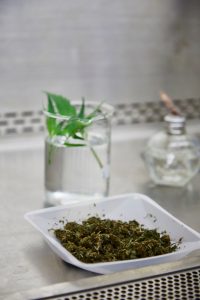 What Is CBD?
What Is CBD?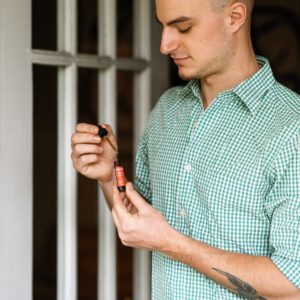 How to Choose CBD Products
How to Choose CBD Products